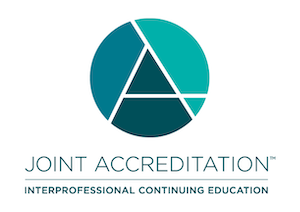Roundtable Discussions (2:45-3:45PM)
Roundtable Discussions
- Table 1: The ADPTN' Model: An Adaptive and Developmental Approach to Preparing Trainees in Neuropsychology by Jonathan Lichtenstein (Dartmouth Health) and Kathleen Barros (Dartmouth Health)
- Table 2 (No CE credit): Advocating for the Student Experience: Examining the Power Differentials Between Supervisor and Supervisee and how to Deconstruct Them by Isabella Le (University of Hartford), Sarayu Iyengar (University of Hartford), and Celina Whitmore (University of Hartford)
- Table 3: Contemporary Psychodynamic Psychotherapy: Myths, Research, Application by Brianna Pollock (The Institute of Living)
- Table 4: Bruce Springsteen to Mary Oliver: Art, Therapy, Training by Lorraine Mangione (Antioch) and Leo Parini (Antioch)
- Table 5: Applying a Trauma Informed Approach to Addressing Vicarious Trauma and Secondary Traumatic Stress within Clinical Practice by Sarah Liquorman (Baystate Family Advocacy Center) and Samantha St. Aubin (Baystate Family Advocacy Center)
- Table 6: Fostering Counseling Psychology Values Through Practicum and Internship Training by Sean DeMartino (Springfield College) and Jennifer Tarm (Springfield College)
- Table 7: Zigzagging Careers: Keeping Up with High-Acuity Youth Assessments by Alex Baker (Cambridge Health Alliance)
- Table 8: Fostering Humility and Developmental Differences Across Stages of Training by Kate Patterson (Community Health Center, Inc.) and Chelsea McIntosh (Community Health Center, Inc.)
- Table 9: Shame, Supervision, and the Shadow of COVID-19: Considerations for the Supervisory Relationship by Dur-e-Smeen Berki (Antioch), Maranda Bowers (Antioch), Alicia MacDougall (Antioch), and Vincent Pingatiello (Antioch)
- Table 10 (No CE credit): Board Certification in Psychoanalytic and Psychodynamic Psychology by Rebecca Moussa (Jessie Danielsen Institute)
Note that learners who attended Table 2 and Table 10 will not receive CE credit.
Select the Continue tab to navigate to the session evaluation.
Weitzman Institute Disclosure Statement
It is the policy of the Weitzman Institute to ensure that Continuing Education (CE) activities are independent and free of commercial bias. To ensure educational content is objective, balanced, and guarantee content presented is in the best interest of its learners' and the public, the Weitzman Institute requires that everyone in a position to control educational content disclose all financial relationships with ineligible companies within the prior 24 months. An ineligible company is one whose primary business is producing, marketing, selling, re-selling or distributing healthcare products used by or on patients. Examples can be found at accme.org.
Faculty participating in a Weitzman Institute-sponsored activity must disclose to the planning committee and audience all financial or other relationship(s) with ineligible companies.
Accreditation Statement
In support of improving patient care, Moses/Weitzman Health System Inc. and its Weitzman Institute is jointly accredited by the Accreditation Council for Continuing Medical Education (ACCME), the Accreditation Council for Pharmacy Education (ACPE), and the American Nurses Credential Center (ANCC) to provide continuing education for the healthcare team.
By completing this activity, you provide Moses/Weitzman Health System Inc. the permission to share completion data with the ACCME and the certifying board(s).

Please note that continuing education credit requirements differ by state, jurisdiction, and licensing agency. It is your responsibility to confirm if your licensing/credentialing agency will accept the credits offered by this activity.
Available Credit
- 1.25 ACE/ASWBThrough Joint Accreditation Moses/Weitzman Health Center, Inc./Weitzman Institute is able to provide Association of Social Work Boards (ASWB) credit to social workers at its activities.
- 1.00 APAThrough Joint Accreditation, Moses/Weitzman Health Center, Inc./Weitzman Institute is able to provide American Psychological Association (APA) credit to psychologists at its activities.
- 1.00 Participation Hour(s)You are able to download an unaccredited Participation Certificate for your records if you are not able to use any of the credit types provided for this activity or if this activity does not offer accredited CME/CE credits.

 Facebook
Facebook X
X LinkedIn
LinkedIn Forward
Forward